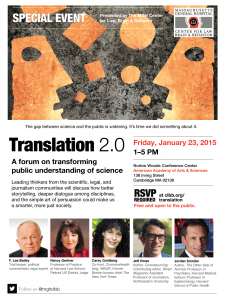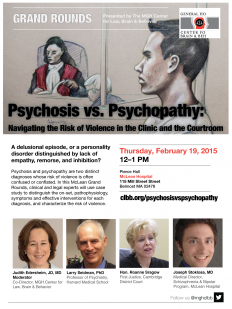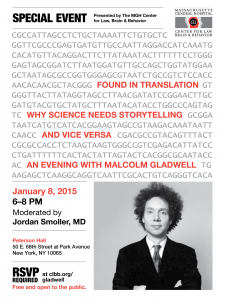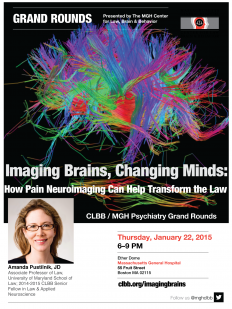The gap between the scientific community and the public is widening. Whether considering climate change or mental health, policymakers and gatekeepers of the legal system routinely mischaracterize scientific consensus, with potentially devastating consequences for the moral health of our society and our collective future. It’s never been more crucial to examine how public understanding of science can be transformed – through better storytelling, deeper dialogue among disciplines, and the simple art of persuasion – and also how science can be better informed (and guided) by the ongoing needs of society.
On Friday, January 23, 2015 at the Norton’s Woods Conference Center of the American Academy of Arts & Sciences in Cambridge, CLBB presented “Translation 2.0: A Forum on Transforming Public Understanding of Science.” Leading thinkers from science, the law, and journalism discussed the art of persuasion (F. Lee Bailey), the successful OpEd (Nancy Gertner), writing a sophisticated science story (Carey Goldberg), new models for disrupting public opinion (Jeff Howe), and why science needs storytelling (Jordan Smoller). Remarks from each speaker were followed by a lively discussion among all attendees around how both scientists and journalists – as well as the public at large – can do more to speak each other’s languages and address key consensus issues. Continue reading »







